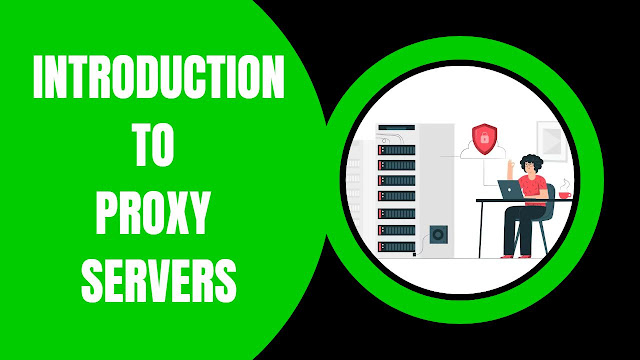A proxy server is an intermediate server that receives data on behalf of a
user from an Internet source, such as a webpage. They serve as extra data
security barriers, shielding consumers from dangerous internet activities.
Proxy servers can be used for various purposes depending on their setup and
nature. Proxies, like any other device linked to the Internet, have
cybersecurity dangers that users should be aware of before using.
Proxy servers allow users and web servers to communicate more easily by
facilitating web requests and answers.
USECASE:
- As a firewall and to protect the local network from external attacks.
- As an IP address multiplexer
- To anonymize web surfing.
- To extract unwanted content, such as ads or “unsuitable” material.
- To provide some protection against hacking.
- To save bandwidth.
ADVANTAGES:
- They increase the user's security and privacy.
- It keeps the user's identity hidden (IP address).
- This helps to control traffic and avoid collisions.
- It saves bandwidth by caching data and compressing incoming traffic.
- Prevent dangerous applications from infiltrating our network.
- You have been allowed access to the restricted content.
Why Proxy Servers are needed:
By Attacker:
An attacker's main task is to conceal their identity to avoid being found
out. Thus, by hiding his or her IP address, the attacker uses a proxy
server to prevent attack detection.
- To hide the actual source of a scan and evade certain IDS/firewall restrictions.
- To hide the source IP address so that they can hack without any legal corollary.
- To mask the actual source of the attack by employing a fake source address of the proxy.
- To remotely access intranets and other website resources that are normally off-limits.
For Protection:
- It reduces the likelihood of data breaches.
- It creates an additional layer of protection between the server and the rest of the internet.
- This also protects you from cyber-attacks.
- It does this by screening queries.
TOOLS:
- Proxy Switcher: It allows attackers to surf the Internet anonymously without disclosing your IP address.
- CyberGhost VPN: It hides the attacker's IP and replaces it with a selected IP, allowing it to surf anonymously and access blocked or censored content.
- BurpSuite
- Tor
- CCProxy
- Hotspot Shield
- For Mobile:
- Shadowsocks: It is a low-resource-consumption tool that is suitable for low-end boxes and embedded devices. It supports open-source implementations in python, node.js, golang, C#, and pure C.
- ProxyDroid: Supports HTTP/HTTPS/SOCKS4/SOCKS5.
- Proxy Manager: It is an Android-based proxy tool. Supports HTTP/SOCK4/SOCKS5.
You might be interested in,


%20Cover.jpg)

%20Cover.jpg)


No comments:
Post a Comment